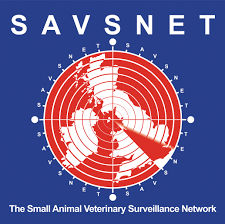Description
The Small Animal Veterinary Surveillance Network (SAVSNET) was recently developed in the UK to improve companion animal-disease surveillance at local, regional and national scales by reusing data from participating veterinary laboratories and veterinary practices (www.savsnet.co.uk). SAVSNET Ltd is a not-for-profit, charitable company, established between University of Liverpool and the British Small Animal Veterinary Association (BSAVA). 2016 has been an exciting year for veterinary surveillance and has seen SAVSNET data used for important research. Here, we will showcase the finding of research into antimicrobial resistance which practitioners can use to assess and reflect on their own practice and we will discuss the Babesia outbreak earlier in the year. A previous webinar describing the SAVSNET project can be accessed freely here https://www.thewebinarvet.com/savsnet. We look forward to showing listeners some of the fruits of SAVSNET veterinary surveillance.
Alan's has two main interests in his research career. The first stems from his PhD and is on the genetic diversity and evolution of pathogens, especially viruses. Recent projects include canine parvovirus, canine coronavirus and feline calicivirus. He is currently working on a project to reappraise the role of old and potentially new pathogens in respiratory disease in dogs and cats. In working with these pathogens, Alan became aware of a distinct gap in knowledge concerning how common these pathogens are in veterinary practice, and whether some outbreaks of disease were being missed. This led Alan and colleagues to develop an interest in using big data to survey companion animal diseases, and ultimately to the establishment of SAVSNET (the Small Animal Veterinary Surveillance Network - SAVSNET.co.uk). SAVSNET collects large volumes of anonymised data from participating veterinary practices and diagnostic laboratories, and uses it to identify significant trends in the diseases seen by veterinary surgeons in practice.
David graduated from the University of Liverpool in 2015 with an intercalated Master’s degree focusing on epidemiology and statistics. He worked with SAVSNET on canine lungworm epidemiology and discovered a fascination with veterinary health informatics and ‘big data’ which lead him to undertake a PhD focusing on antimicrobial prescription and resistance surveillance in companion animals shortly after graduating. He is currently in his second year and hopes to be publishing his first paper on antibacterial prescription surveillance shortly.
